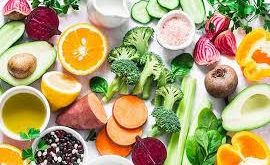As India faces a surge in lifestyle diseases such as diabetes, high blood pressure, and heart problems, health experts say that a vegan diet, which is built around dals, beans, whole grains, vegetables, fruits, nuts and seeds, and which excludes meat, eggs and dairy can help manage weight, keep blood sugar steady, and reduce cholesterol.
The Indian Council of Medical Research-National Institute of Nutrition’s latest Dietary Guidelines also recommend that people increase their intake of vegetables, pulses and whole grains, while cutting down on salt, sugar and fat, exactly the kind of balance that a vegan plant-based diet can offer.
“Vegan diet has scientific backing. One clinical trial found that people with type-2 diabetes who followed a low-fat vegan diet improved their blood sugar control and heart risk factors compared to those who followed a standard diabetes diet. Another review of multiple studies reported that vegetarian and vegan diets are linked to better cardiovascular health outcomes, which is important for a country like India where heart disease is a leading cause of death,” said Prashanth Vishwanath, Country Director Veganuary India, the Indian branch of international NGO Veganuary focused on training people to adopt a vegan diet.
Interestingly, Indian food culture already makes the shift easier. As Prashanth puts it, “many Indian foods are naturally vegan, so one does not have to feel like it is a totally different diet.”
Prashanth also points out that people generally think switching to vegan meals can be expensive or complicated. He says that traditional dishes like khichdi, idli-sambar, vegetable biryani, aloo gobi, and masoor dal are already plant-based or can be made vegan with very small changes. According to him, focusing on fresh, seasonal vegetables not only supports better health but also makes the diet more sustainable for both the users and the planet.
Dt. Ginni Kalra, Head Dietitian, Aakash Healthcare New Delhi, says, “A plant-based diet is naturally high in fibre and antioxidants, which improve digestion, keep you feeling full for longer, and support overall heart health. Over time, this can help control blood sugar, manage weight, and reduce the strain on vital organs.”
Dt. Ginni Kalra further says that eating acid-producing foods like meat, eggs and dairy can increase inflammation linked to weight gain. On the other hand, leafy greens, berries and legumes can support weight loss and improve gut health.
Dt. Swatee Sandhan Chief Dietitian Jupiter Hospital Pune, says that a thoughtfully planned vegan diet, which is rich in dal, vegetables, fruits, whole grains and nuts can help manage weight, blood sugar and cholesterol for many people. Combining this with daily walking, adequate sleep and regular health check-ups can make it a realistic plan for tackling lifestyle diseases.
Dt Swatee Sandhan further says, “Vegan eating can offer many health benefits, but it is not a magic fix. Instead of just following online advise and trends, those suffering from any disease should especially adapt the diet to their personal health needs after consulting a qualified doctor or nutritionist.”
 Newspatrolling.com News cum Content Syndication Portal Online
Newspatrolling.com News cum Content Syndication Portal Online






